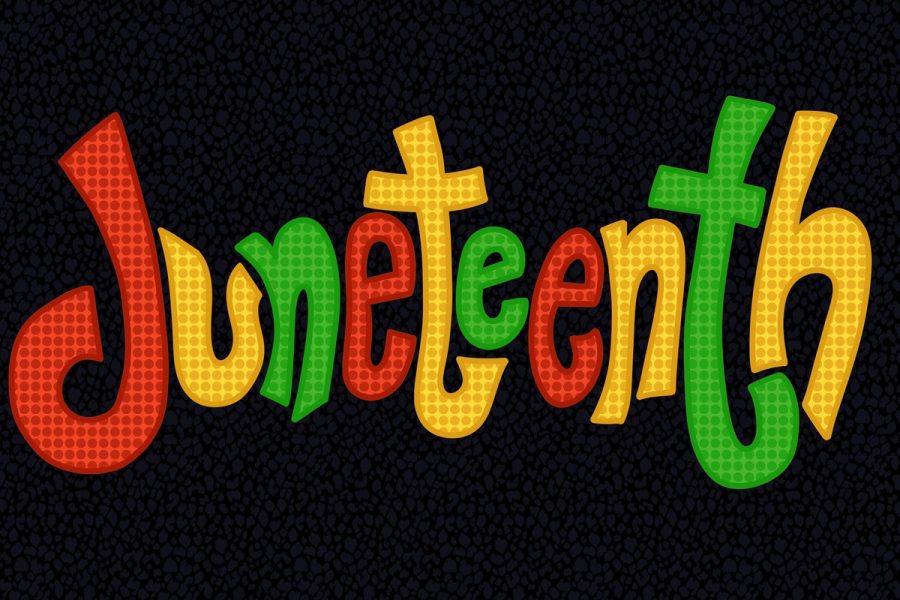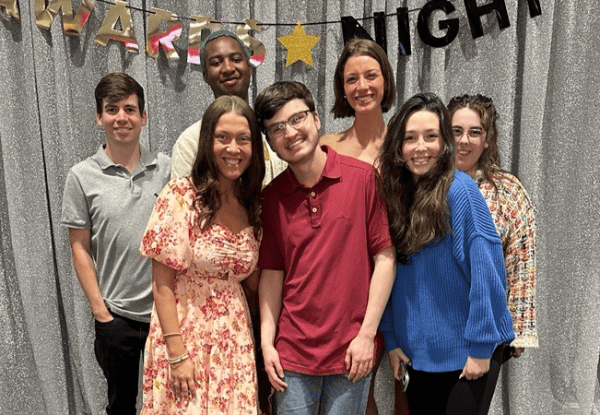Opinion | Juneteenth: More than just a cookout
June 14, 2023
Juneteenth is a celebration of culture and freedom. It has been acknowledged in the Black community for centuries, but is so much more than just a reason to have a cookout, especially when some don’t even want it to be recognized federally.
We should also acknowledge why it exists in the first place and how to continue progressing forward given the current political climate.
For 157 years, the United States has observed Juneteenth, June 19, commemorating the emancipation of enslaved African Americans at the end of the American Civil War. On June 19, 1865, the last Confederate community of enslaved African Americans in Galveston, Texas, received word that they were finally freed from bondage following the Emancipation Proclamation of Jan. 1, 1863.
It wasn’t until 2021 that Juneteenth was officially recognized as a federal holiday after President Joe Biden signed a bill from Congress into law.
Several House Republicans voted against this monumental bill, including two of Alabama’s own — Reps. Mo Brooks and Mike Rogers — showcasing the importance of voting in local and state elections. It is becoming more crucial that we keep instances like this in mind when picking who represents us and our country.
In more recent years, there has been even more controversy surrounding the celebration of Black culture.
When I was younger, I was never taught what Juneteenth was or what it meant to the Black community at home or in school. In fact, by high school, it seemed like any talk about our history was brushed off with “Oh, well there should be a white history month” or “Why do we keep talking about Black people?”
Growing up hearing things like that, and even seeing it happen in the present day, makes it hard for me and many other individuals to find a seat at the table. I distinctly remember sitting in my majority-Black AP United States History class in eleventh grade while my white teacher told us that “we don’t need to go over the Black history section” because “you people should know your history.” That comment stuck with me going into college because I didn’t actually know that much about my own history besides the basics like Dr. Martin Luther King Jr. and Barack Obama.
Being an African American student at a predominately white institution where white students make up 76.7% of the campus population has us walking around feeling as if there is a target on our backs and, given the current political climate, our seats at the academic and professional tables.
Many think we shouldn’t even have those seats in the first place and are attempting to sweep them out from under us with alarming speed and hostility. Our right to simply exist in the same spaces as others are continually threatened and ignored at the hands of the people we vote into office.
Juneteenth National Independence Day is not here to overpower July Fourth, it is here to remind everyone that we deserve a seat at the table just like everyone else who fights so hard to keep us away.
People like Ron DeSantis want to make sure our culture and history are written out of our textbooks. People like him make it seem like it is offensive and derogatory to exist while being Black. With a mindset like that, Juneteenth is seen as another activity when it really is so much more than that.
Juneteenth is a celebration of life, courage, resilience and passion. It’s a celebration of those we lost all those years ago, a celebration of the work that has been done to ensure that we are seen as equals in this world.
On the outside, it may seem like another excuse to grill and drink outside in the backyard, but this year, I encourage all of you to sit and experience some of the Juneteenth celebrations around Tuscaloosa or wherever you call home this summer, just to get a glimpse into our rich culture and history.
If you cannot, or rather will not support and uplift Black voices, do not judge the people who do. After all, it is just a federal holiday, right?










